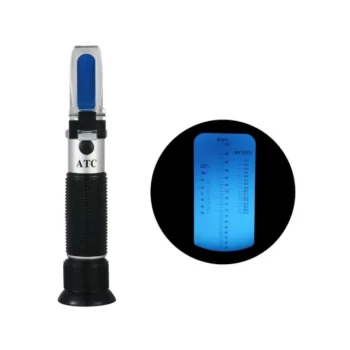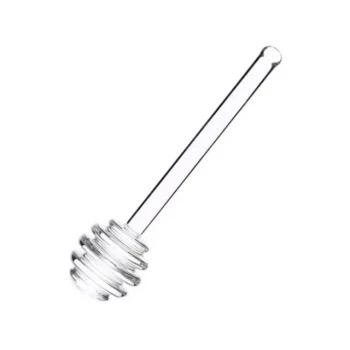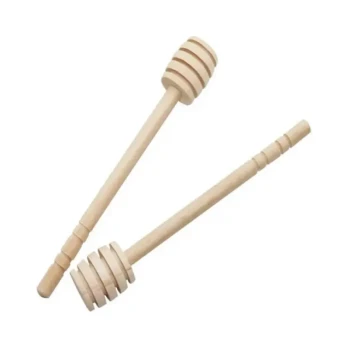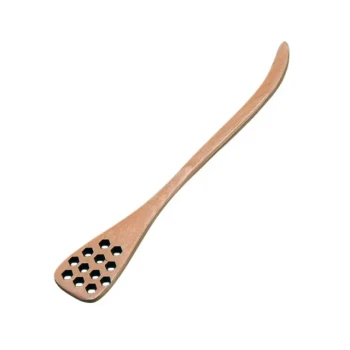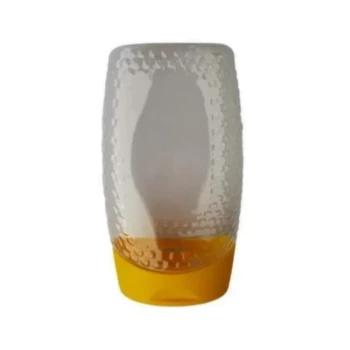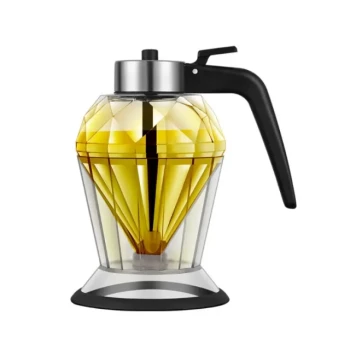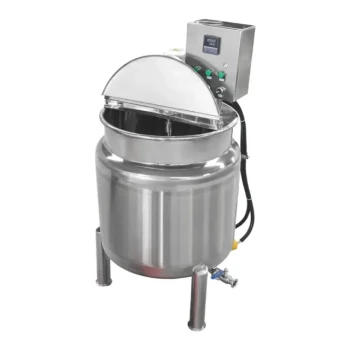In essence, fermentation is the primary process by which honey spoils. Caused by excessive moisture, fermentation activates dormant yeasts within the honey. These microorganisms consume the honey's natural sugars, producing alcohol, carbon dioxide, and other compounds that result in an unpleasant sour taste, a fermented odor, and a frothy texture.
Honey's legendary stability is not absolute; it is entirely dependent on maintaining a low moisture content. Once water levels rise above a critical threshold, natural yeasts awaken and begin to break down the sugars, fundamentally degrading the honey from a valuable food into a spoiled product.
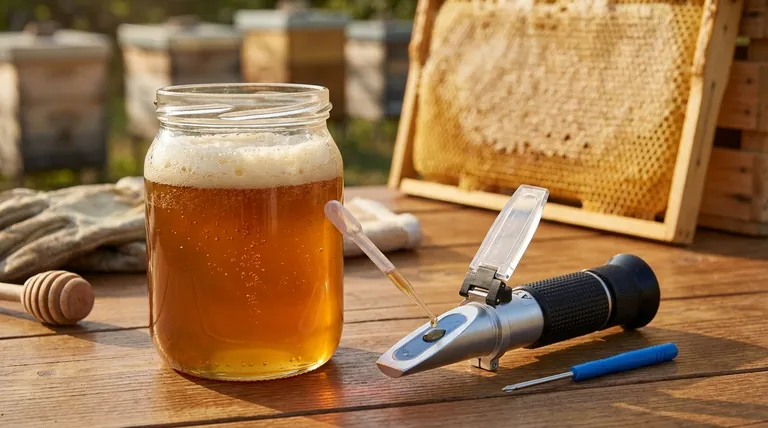
The Science of Honey's Stability
To understand why fermentation occurs, we must first understand why honey is naturally so resistant to spoilage. Its stability comes from a combination of factors that create an environment hostile to most microbes.
Honey's Natural Defenses
Honey's primary defense is its high concentration of sugar, which creates high osmotic pressure. This process draws water out of any microbial cells, effectively dehydrating and killing them.
Additionally, honey is naturally acidic, with a pH typically between 3.5 and 4.5. This acidity further inhibits the growth of bacteria and other potential spoilage organisms.
The Role of Moisture Content
The single most critical factor in honey preservation is its moisture content. Properly cured honey should have a water content below 18.6%. Above this level, the osmotic pressure begins to weaken.
When water content increases, it dilutes the sugars and creates an environment where specific types of yeast can survive and thrive. This is the trigger for fermentation.
The Culprits: Osmotolerant Yeasts
Unlike most microorganisms, certain wild yeasts, known as osmotolerant yeasts, can survive in high-sugar environments. These yeasts are naturally present in nectar, on bees, and in the air.
In dry honey, these yeasts lie dormant. But when the moisture content rises, they are reactivated and begin the fermentation process.
How Fermentation Alters Honey
Once activated, the yeasts fundamentally change the chemical and sensory properties of the honey.
The Chemical Transformation
Yeast consumes the simple sugars in honey (glucose and fructose) and converts them into ethanol (alcohol) and carbon dioxide gas.
If exposed to air, bacteria can then convert this alcohol into acetic acid, the primary component of vinegar. This is what gives fermented honey its distinctly sour and "off" taste.
The Sensory Impact: Taste and Odor
The immediate impact of fermentation is a noticeable change in taste and smell. The honey loses its characteristic sweetness and floral notes, replacing them with sharp, sour, and sometimes yeasty or alcoholic flavors. The smell is often described as fermented, acidic, or vinegary.
Physical Changes: Bubbles and Foam
The production of carbon dioxide gas creates visible signs of fermentation. You may see small bubbles rising through the honey or a layer of froth and foam on the surface. In a sealed container, this gas buildup can create enough pressure to pop the lid.
Understanding the Nuances and Risks
While fermentation in honey is typically a sign of spoilage, it's important to distinguish it from intentional, controlled processes.
Spoilage vs. Intentional Fermentation
The uncontrolled fermentation of raw honey results in a spoiled, unpalatable product. This is entirely different from the production of mead, or honey wine.
Making mead involves intentionally diluting honey with water and adding specific strains of yeast to guide a controlled fermentation. The goal is to create a pleasant alcoholic beverage, not to spoil the honey.
Is Fermented Honey Safe to Eat?
For the most part, eating a small amount of naturally fermented honey is unlikely to be dangerous, but it is considered spoiled. The taste and quality are severely compromised. For commercial purposes, fermented honey is classified as substandard.
Key Risk Factors
Several factors can lead to a high moisture content and subsequent fermentation. These include harvesting honey too early before the bees have had a chance to dehydrate it (unripe honey), or storing honey in a humid environment where it can absorb moisture from the air.
Preventing Unwanted Fermentation
Controlling moisture is the only way to guarantee honey's long-term stability. Your actions depend on your role.
- If you are a beekeeper: Harvest honey only after the bees have "capped" the cells with wax. This is the natural sign that the honey is cured and has a low moisture content. For precision, use a honey refractometer to ensure water levels are below 18.6%.
- If you are a consumer or processor: Store honey in an airtight container in a cool, dry location. This prevents it from absorbing atmospheric moisture, which is the most common cause of fermentation after it has been harvested.
- If you find crystallized honey: Be aware that crystallization can sometimes increase the risk of fermentation. As sugar crystals form, the remaining liquid portion has a slightly higher water content, which can be enough to trigger fermentation in that liquid phase.
By understanding and controlling moisture, you can effectively preserve the integrity and exceptional quality of your honey.
Summary Table:
| Aspect of Fermentation | Impact on Honey |
|---|---|
| Primary Cause | Moisture content exceeding 18.6% |
| Chemical Change | Sugars convert to alcohol & CO₂ |
| Taste & Odor | Sour, vinegary, yeasty flavors |
| Physical Signs | Bubbles, foam, pressure in jar |
| Key Prevention | Control moisture during harvest & storage |
Protect Your Honey Harvest with Professional Equipment from HONESTBEE
Is fermentation compromising the quality of your honey yield? At HONESTBEE, we supply commercial apiaries and beekeeping equipment distributors with the wholesale-focused tools needed to prevent spoilage and maximize product value.
We provide essential equipment like honey refractometers for precise moisture testing and airtight storage solutions to maintain honey's legendary stability. Our products are designed to help you harvest at the perfect time and store honey correctly, ensuring it reaches your customers in perfect condition.
Safeguard your investment and product quality. Contact our team today to discuss your commercial beekeeping supply needs.
Visual Guide
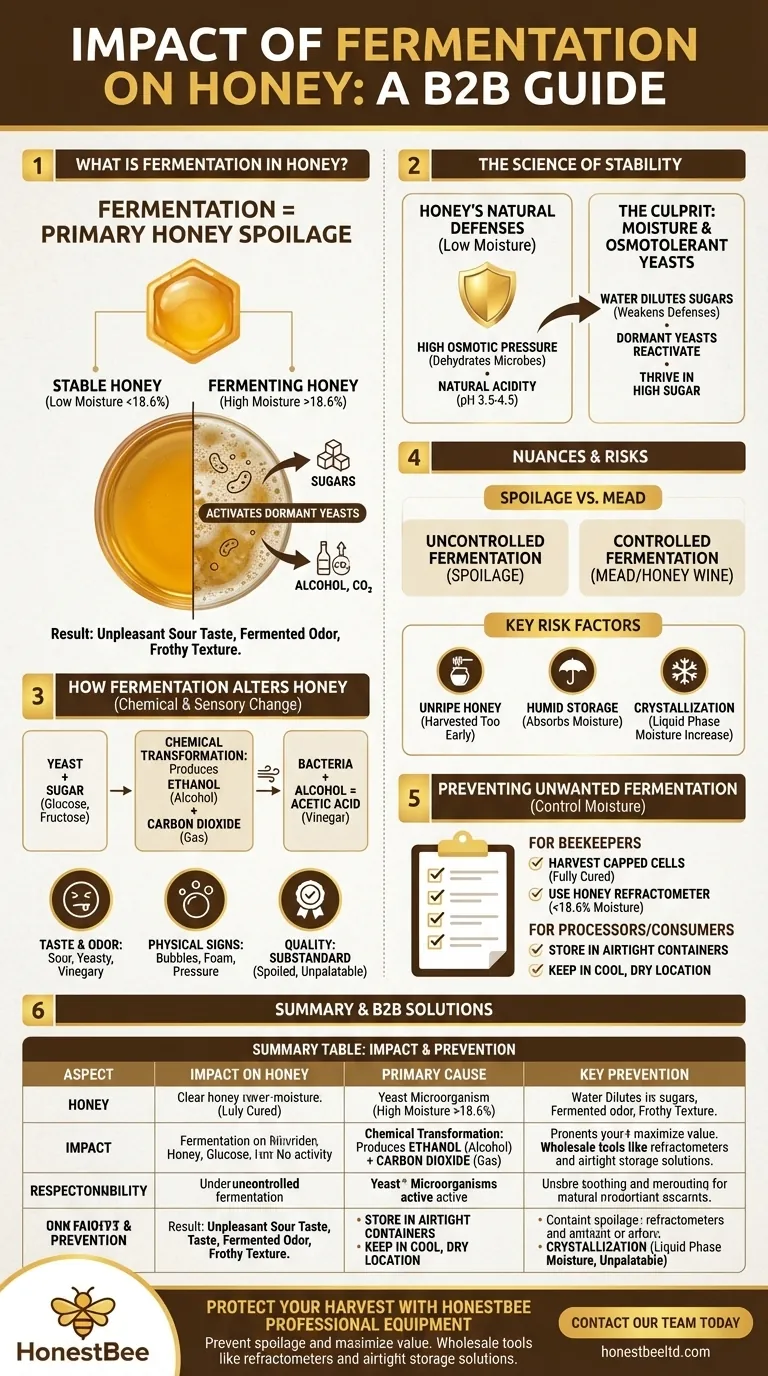
Related Products
- Precision Honey Refractometer Instrument for Quality Assessment
- Digital Honey Refractometer for Precision Measurement of Optimal Honey Quality
- Premium Heat-Resistant Glass Honey Dipper
- Natural Wood Honey Dipper for Tea Coffee and Desserts
- Modern Honeycomb Pattern Wooden Honey Dipper for Stirring and Drizzling
People Also Ask
- Why are standardized colony definitions essential? Drive R&D precision for beekeeping consumables and prevention products.
- What post-harvest maintenance tasks are essential for honeybee health before winter? Expert Overwintering Guide
- What is the role of yeasts in honey and where do they originate? A Guide to Managing Honey Quality and Fermentation
- What is the necessity of using a heated sampling line for beehive air measurement? Ensure Accurate Hive Data Integrity
- Why are industrial-grade mobile beekeeping vehicles necessary for forest nectar? Master Complex Forest Terrain
- What is the primary function of specialized plastic capture containers? Ensure Reliable Honeybee Sample Integrity
- What is the general purpose of beekeeping equipment? Optimize Colony Health and Industrial Honey Yield
- What is the primary technical purpose of using a high-precision timer in honeybee monitoring? Quantify Foraging Success
